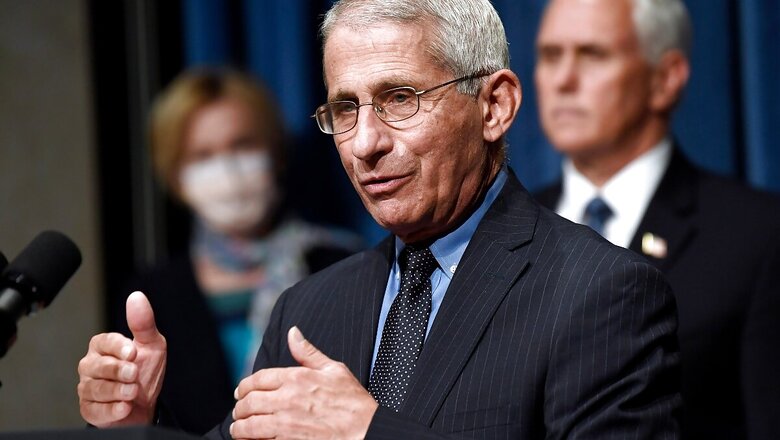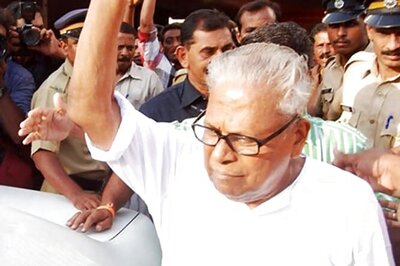
views
Human challenge trials (HCT) to test Covid-19 vaccines are not necessary at this time as randomised controlled trials are quite feasible owing to the high incidence of the infectious disease, said Dr Anthony Fauci, director of the National Institute of Allergy and Infectious Diseases (NIAID) in the US.
HCTs involve intentionally injecting a human trial participant with an infectious disease organism. Fauci’s comments come in the backdrop of the Oxford University’s plans to consider using HCT to speed up the vaccine trials.
The recently published results of their Phase I trial showed that the vaccine did not lead to major adverse reactions and also produced neutralising antibodies in some measure.
Fauci said that an expert consultation was carried out on this issue in the US and it was concluded that such studies were not necessary at this time. “The full impact of SARS-CoV-2 infection is not yet fully understood and we don’t have highly effective therapies that are available to cure individuals who are infected in the challenge studies. These factors have led us to conclude that human challenge trials are not essential nor are they ethically justified at the present time,” Fauci said.
The veteran infectious disease expert who is leading the fight against Covid-19 pandemic in the United States spoke on the issue at a special online symposium organised by the Indian Council of Medical Research (ICMR) on ‘Science and Ethics’ of vaccine.
Fauci said that the continuing high incidence of the infectious disease, though concerning from a public health standpoint, has made randomised control trials feasible.
The World Health Organization (WHO) has said that “this organism may be close wild-type and pathogenic, adapted and/or attenuated from wild-type with less or no pathogenicity, or genetically modified on some manner.”
Phase-III clinical trials of the Oxford vaccine candidate had begun late May, and besides testing it on 10,000 people in the United Kingdom, the University’s team has also tied up with organisations in Brazil and South Africa for Phase-IIII trials.
Dr Adrial Hill, director of the Jenner Institute and professor of human genetics at the University of Oxford made a case for using HCTs in a complementary role and raised a question on the reluctance to use it at ICMR’s symposium.
“They (HCTs) are not sufficient unto themselves; they need the safety data before you can license it. Given that there are 19 infectious diseases where people in modern era in recent years have been infecting others safely, and the track of all those diseases we see, there have been no issues. Then why are we so reluctant to do this in Covid-19?” Hill said.
“The most controversial is if we can treat these people, is there a pre-emptive therapy. Now you have Remdemsivir; you have Interferon-Beta, convalescent plasma. I would recommend people consider both approaches in parallel. The second one is massively quicker and less expensive than the first and will add information to your vaccine,” Hill added.
Historically, HCTs have been used for small pox, cholera, influenza and typhoid. However, critics have argued that unlike Covid-19, many of these diseases had an alternative therapy available to save people from dying.
Partnerships With India
Earlier in his brief talk, Fauci said that NIAID, National Institute of Health, ICMR and Department of Biotechnology have partnered for more than 30 years on the Indo-US vaccine action plan (VAP).
“Three weeks ago the VAP convened an expert advisory committee to review Covid-19 vaccine research and development in India. Eleven vaccines were reviewed by a panel of experts who provided recommendations for how these candidates might be further developed and assessed. We look forward to continue this involvement and supporting these vaccines R&D efforts,” Fauci said.
Hill, too, highlighted that India is among nine countries where the Oxford University has engaged with vaccine manufacturers. The University has tied up with Pune-based Serum Institute of India to produce millions of doses of its prospective vaccine. However, the Indian government clarified on Thursday that it has not entered into agreements with any vaccine manufacturers yet.














Comments
0 comment